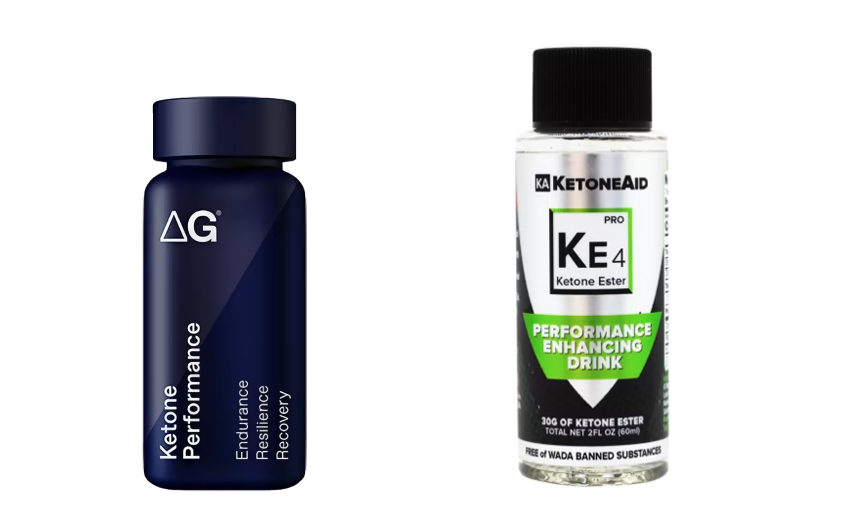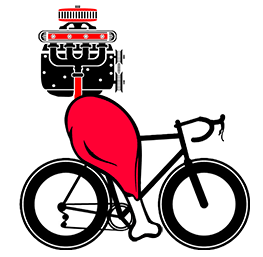Study Summary
We’ve long suspected the following:
Exogenous Ketones’ main benefits may be in regard to mental elements of a race.
Particularly the ability for your brain to be alert and not want to quit.
Now a new study appears to back this up.
A study examined whether ketone ester supplements could help endurance athletes sustain their mental focus during long runs and recover physically afterward. Eighteen recreational runners participated by completing either a full 100-kilometer trail run or running until they became exhausted at 80 kilometers or 60 kilometers. Half the runners received ketone ester supplements containing a ketone body called (R)-3-hydroxybutyl (R)-3-hydroxybutyrate (KE) before, during, and after the run. The other half received a placebo with no calories or ketones.
The researchers measured the runners’ blood ketone levels, mental alertness, muscle biopsies, and other metrics. They found that the KE supplements elevated blood ketone levels to 2 to 3 millimoles per liter during the runs, compared to under 0.3 mmol/L in the placebo group. The placebo group showed declined visual reaction times and movement execution times during the runs, indicating reduced mental focus. However, the KE group maintained their reaction and movement times, suggesting sustained mental focus.
Visual reaction times:
- Placebo group: 18.7% worse time
- Ketone group: 0% increase
Movement execution times:
- Placebo group: 40.8% worse time
- Ketone group: 0% increase
After the runs, the KE group had higher dopamine levels, less inflammation in their leg muscles, and other signs of improved recovery.
In conclusion, the study found that ketone ester supplements may help endurance athletes in two key ways: 1) sustaining mental focus during long runs by providing the brain with ketones for energy and raising dopamine levels, and 2) speeding up post-run muscle recovery by reducing inflammation. More research is needed, but these results suggest ketone supplements could provide endurance athletes with a competitive edge.
What Could Be Possible Benefits of Increased Dopamine?
Increased dopamine levels during prolonged endurance exercise can help in several ways:
Dopamine enhances focus and motivation. Higher dopamine may help endurance athletes maintain mental drive and motivation during the grueling latter stages of a long run or race. This can help combat feelings of exhaustion or desire to quit.
Dopamine elevates mood and positive feelings. Having higher dopamine circulation may lead to improved mood and increased positive emotions in athletes during runs. This can make the experience more enjoyable and help avoid negative thoughts.
Dopamine may dull perceptions of discomfort. Some research shows dopamine can reduce perceptions of pain and discomfort. For endurance athletes, this may translate into feeling less discomfort from muscle soreness, hunger, thirst or other physical strains during runs. This could improve performance.
There are only two companies making the Ketone Esters described in this study.

See the additional ketone ester articles here.
Abstract
Exogenous ketosis increases circulating dopamine concentration and maintains mental alertness in ultra-endurance exercise
Exogenous ketosis can improve psychocognitive functioning during exercise as well as stimulate postexercise muscular recovery. Therefore, we hypothesized that ketone ester (KE) supplementation can counteract the decline in psychocognitive functioning during ultra-endurance exercise and stimulate muscular recovery. Eighteen recreational runners participated in a full 100km trail run (RUN, n=8), or ran to premature exhaustion (80km: n=6; 60km: n=4). Before (25g), during (25g·h-1), and after (5*25g in 24h) RUN they received ketone ester (R)-3-hydroxybutyl (R)-3-hydroxybutyrate (KE, n=9) supplements or a non-caloric placebo (CON, n=9). Blood samples and muscle biopsies were taken, and mental alertness was assessed by a psychocognitive test battery at different times before, during, and up to 36h after RUN. Compared with CON (<0.3 mM), in KE blood D-ß-hydroxybutyrate concentration was consistently elevated to ~2-3 mM during RUN. In CON, RUN increased visual reaction times from 353±53 to 419±54ms, and movement execution times from 174±47 to 245±64ms. But this effect was fully negated by KE (p<0.05). Plasma dopamine concentrations doubled in KE during RUN but remained stable in CON, resulting in higher concentrations after RUN in KE (4.1±1.7 nM) than in CON (2.4±0.8 nM, p=0.048). KE also inhibited muscular infiltration of macrophages and suppressed AMPK phosphorylation status until 36h post exercise (p<0.05 KE vs. CON). In conclusion, KE increases circulating dopamine concentration and improves mental alertness, as well as improves postexercise muscular inflammation in ultra-endurance exercise.
Journal of Applied Physiology, 2023
Authors: Chiel Poffé, Ruben Robberechts, Myrthe Stalmans, Jan Vanderroost, Stijn Bogaerts, and Peter Hespel
https://doi.org/10.1152/japplphysiol.00791.2022
Listen to the Two Minute Study Summary

Jordan Fowler has experience as a head swimming coach of the Frisco Swim Team, a TAAF-awarded coach, a track and field distance running consultant for select Texas High School runners, and has competed as a triathlete, road runner, and cyclist. Though he is remarkably slower than he was in his 20s and 30s, he still enjoys endurance sports and sports science studies.
